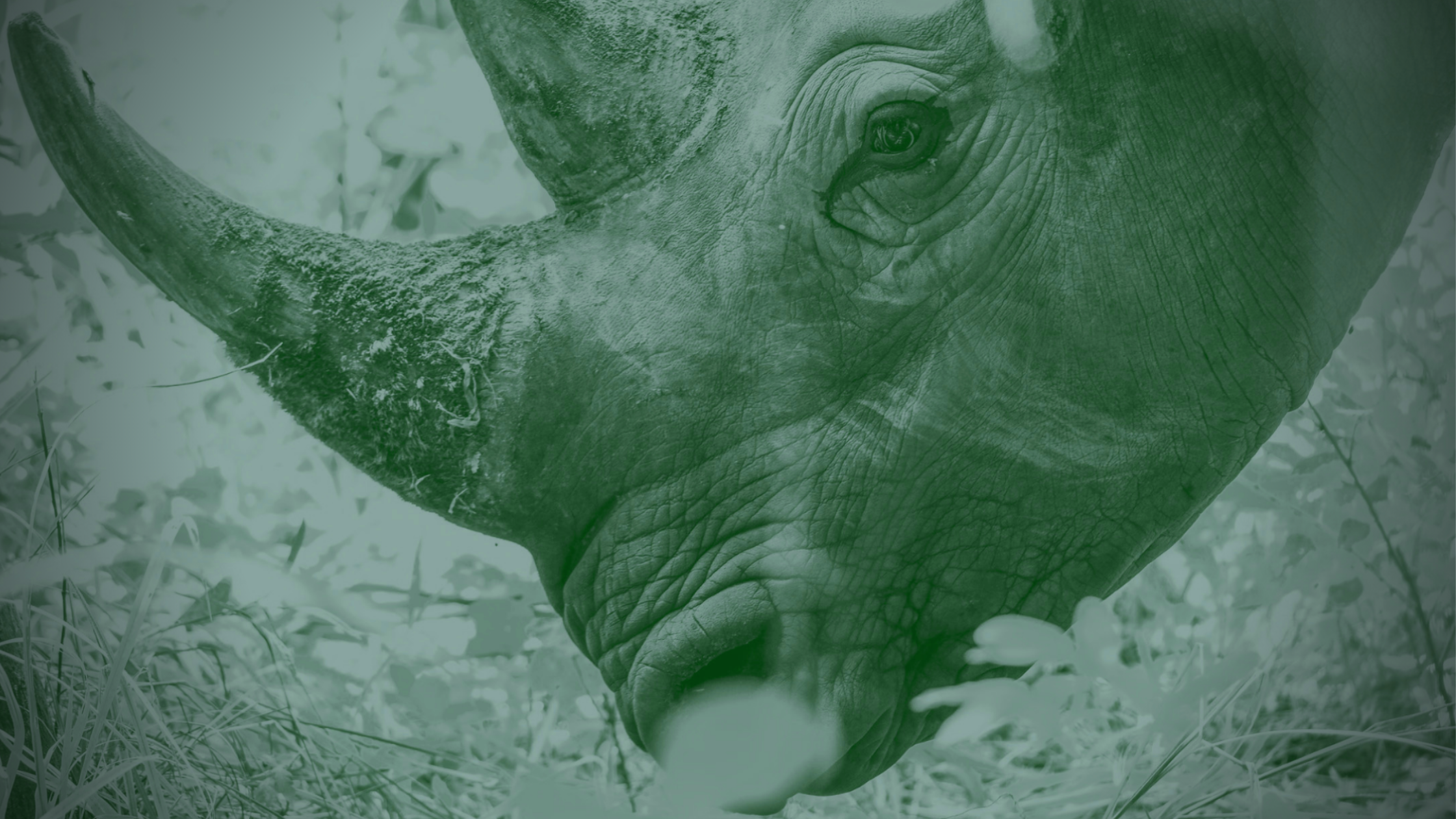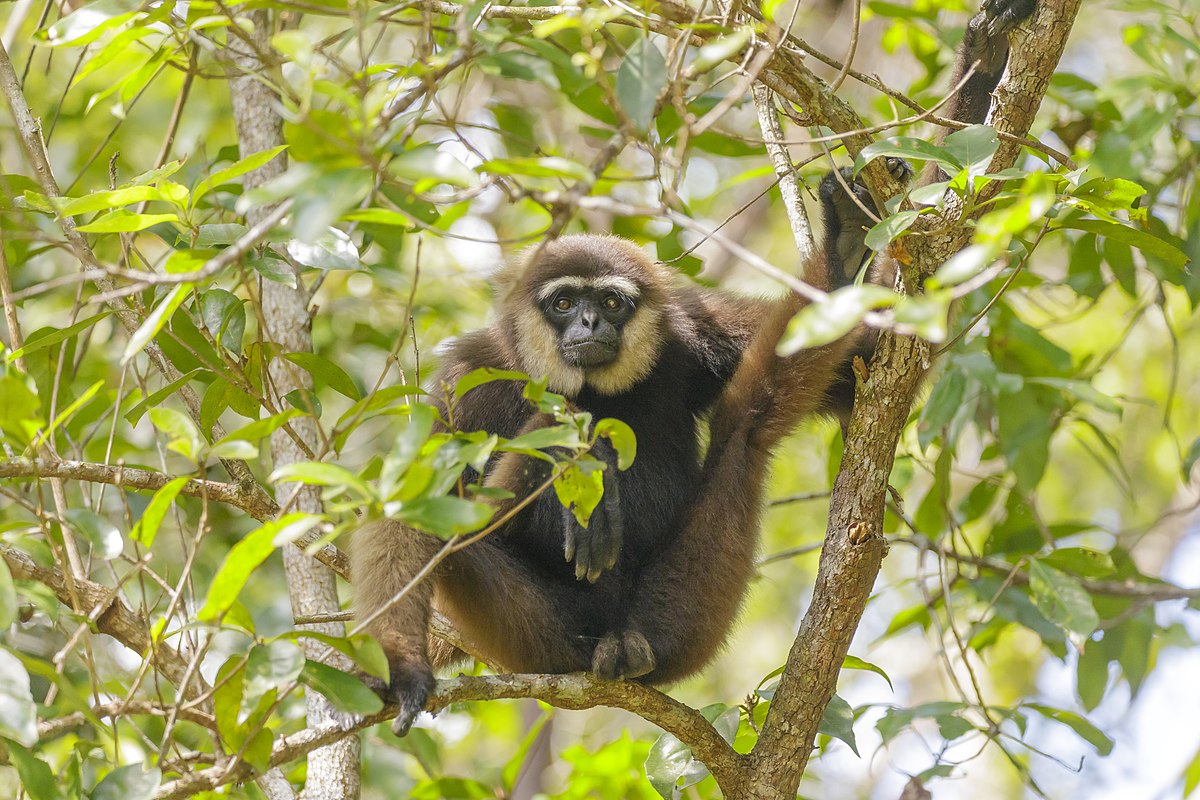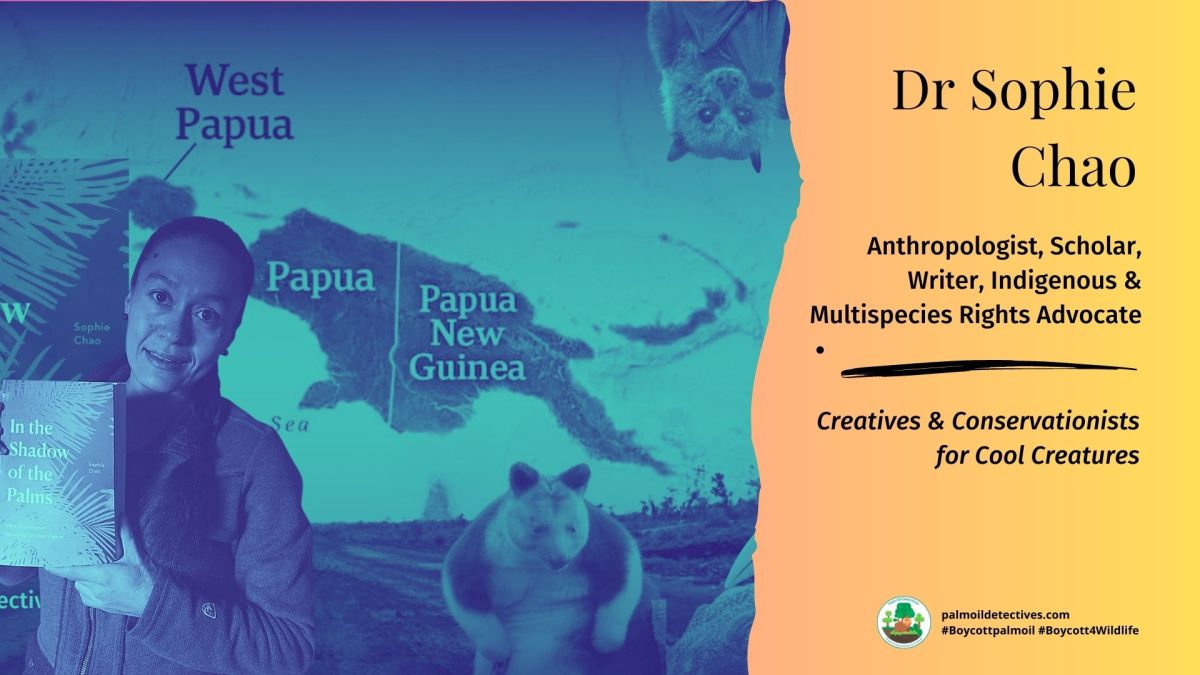Bornean White-bearded Gibbon Hylobates albibarbis
Endangered
Indonesia (Kalimantan)
The Bornean White-bearded Gibbon belongs to the genus Hylobates. The word Hylobates means ‘Forest Walker’ in Greek. The gibbons in this genus are known for the white circle of fur around their faces. They are known to communicate in species-specific song when defining territory or attracting mates. They sing in regional accents to each other, have long swinging arms, inquisitive natures and superior acrobatic skills, they spend most of their lives high up in the tree-tops.
The Bornean White-bearded Gibbon is an intelligent and dynamic gibbon of the genus Hylobates (meaning forest walker in Greek). Endangered @IUCNredlist from complex threats incl. #palmoil #deforestation in #Kalimantan #Boycott4Wildlife
Tweet
The Bornean White-bearded Gibbon is considered Endangered under Criterion A4cd, based on an overall suspected population reduction of 50% or more over the previous two generations (1990-2019), which is also expected to continue impacting the current generation (2020-2035).
IUCN Red List
The Bornean White-bearded Gibbon is chiefly arboreal and diurnal. This species is socially monogamous and highly territorial (Mitani 1987); estimates of territory size are 47 ha at Sabangau (Cheyne 2010) and 30-43 ha at Gunung Palung (Mitani 1990; Marshall 2004). These gibbons prefer to eat ripe, sugar-rich fruits (Cheyne 2008, Cheyne et al. 2016, Dillis et al. 2014, McConkey 2000, Singh et al. 2018) although unripe fruits, immature leaves, insects, and flowers are consumed during periods of low fruit abundance (Coiner-Collier et al. 2016, McConkey 1999). The species inhabits a range of primary, secondary and selectively logged tropical evergreen forest types (Cheyne 2010, Cheney et al. 2016, Harrison et al. 2010, Marshall et al. 2009). Peat swamp forest is a particularly important forest type for the Bornean White-bearded Gibbon (Cheyney 2008, 2010; Cheyney et al. 2008). Population densities are correlated with forest structure (Hamard et al. 2010, Cheyne et al. 2016, Marshall et al. 2014), altitude (Marshall 2009), and the abundance of important fallback foods (Marshall and Leighton 2006).
The Bornean White-bearded Gibbon is considered Endangered under Criterion A4cd, based on an overall suspected population reduction of 50% or more over the previous two generations (1990-2019), which is also expected to continue impacting the current generation (2020-2035). The reduction is driven by a corresponding loss of suitable habitat (that has averaged 1% annually in Borneo over the past 30 years) and is expected to continue at that rate (or higher) for the next 10 to 20 years, as well as by significant losses due to hunting and live capture for the pet trade.
Further Information

Marshall, A.J., Nijman, V. & Cheyne, S. 2020. Hylobates albibarbis. The IUCN Red List of Threatened Species 2020: e.T39879A17967053. https://dx.doi.org/10.2305/IUCN.UK.2020–2.RLTS.T39879A17967053.en. Downloaded on 06 February 2021.

How can I help the #Boycott4Wildlife?
Contribute in five ways
1. Join the #Boycott4Wildlife on social media and subscribe to stay in the loop: Share posts from this website to your own network on Twitter, Mastadon, Instagram, Facebook and Youtube using the hashtags #Boycottpalmoil #Boycott4Wildlife.
2. Contribute stories: Academics, conservationists, scientists, indigenous rights advocates and animal rights advocates working to expose the corruption of the palm oil industry or to save animals can contribute stories to the website.
3. Supermarket sleuthing: Next time you’re in the supermarket, take photos of products containing palm oil. Share these to social media along with the hashtags to call out the greenwashing and ecocide of the brands who use palm oil. You can also take photos of palm oil free products and congratulate brands when they go palm oil free.
4. Take to the streets: Get in touch with Palm Oil Detectives to find out more.
5. Donate: Make a one-off or monthly donation to Palm Oil Detectives as a way of saying thank you and to help pay for ongoing running costs of the website and social media campaigns. Donate here







